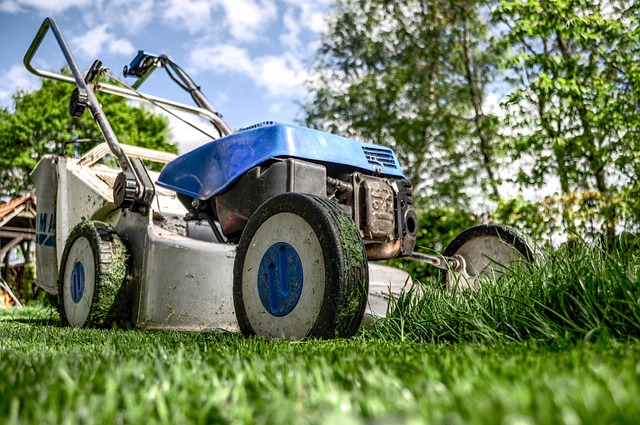Effective yard waste removal and recycling are crucial for maintaining environmental sustainability. This section details how composting organic materials not only supports ecological health but is also often mandated by local regulations. It underscores the benefits of yard waste recycling programs offered by municipalities, which help convert waste into valuable resources like compost. Homeowners and landscapers are encouraged to adopt these practices as part of a larger effort to reduce environmental impact and conserve natural resources, contributing positively to the overall health of the planet. Yard waste removal and recycling thus emerge as key actions for an eco-conscious community.
Engage in the art of enriching your garden while reducing waste with our comprehensive guide on compost creation for garden enthusiasts. This article delves into ‘Yard Waste Removal and Recycling,’ offering practical solutions for efficient yard waste management through composting. We’ll walk you through a step-by-step guide to setting up a home compost system, ensuring you maximize garden benefits with effective yard waste recycling. Transform your organic waste into nutrient-rich soil amendments and elevate your gardening practices.
- Efficient Yard Waste Management: The Composting Solution
- Step-by-Step Guide to Setting Up Your Home Compost System
- Maximizing Garden Benefits with Effective Yard Waste Recycling
Efficient Yard Waste Management: The Composting Solution

Managing yard waste effectively is a cornerstone of sustainable gardening practices. Traditional yard waste removal methods often involve collecting organic matter such as leaves, grass clippings, and garden trimmings and transporting them to municipal composting facilities or landfills. However, these methods can be resource-intensive and may contribute to greenhouse gas emissions due to the decomposition of organic material in anaerobic conditions. An eco-friendly alternative that harnesses the power of natural decomposition processes is yard waste recycling through composting. This process not only reduces the volume of waste but also produces a nutrient-rich compost that can be used to enrich garden soil, thereby promoting plant growth and reducing the need for chemical fertilizers.
Composting is a straightforward yet highly beneficial activity for garden enthusiasts. It begins with the selection of an appropriate composting system that suits the space available and the amount of yard waste generated. Whether it’s a traditional heap, a compost tumbler, or a sealed bin, each method effectively breaks down organic matter into compost. The key to successful composting lies in balancing ‘greens’—nitrogen-rich materials like kitchen scraps and fresh grass clippings—with ‘browns’—carbon-rich materials such as dried leaves, straw, or shredded paper. Regular turning or mixing of the compost pile encourages aeration and decomposition, leading to a faster transformation of yard waste into valuable compost. This not only streamlines yard waste removal but also contributes to a healthier garden ecosystem and supports the principles of recycling organically.
Step-by-Step Guide to Setting Up Your Home Compost System

Maximizing Garden Benefits with Effective Yard Waste Recycling

Garden enthusiasts have a new ally in their quest for sustainable gardening practices: compost creation. By employing efficient yard waste management through composting, hobbyists can recycle organic materials into nutrient-rich soil amendments, as detailed in “Efficient Yard Waste Management: The Composting Solution.” The step-by-step guide provided in “Step-by-Step Guide to Setting Up Your Home Compost System” simplifies the process, making it accessible for all levels of gardeners. Moreover, the insights on maximizing garden benefits in “Maximizing Garden Benefits with Effective Yard Waste Recycling” highlight the dual role of yard waste removal and recycling as both an environmental responsibility and a boon to garden health. Integrating compost into your gardening routine not only enriches the soil but also promotes a more sustainable approach to yard waste removal and recycling, making it a win-win for both your garden and the planet.






